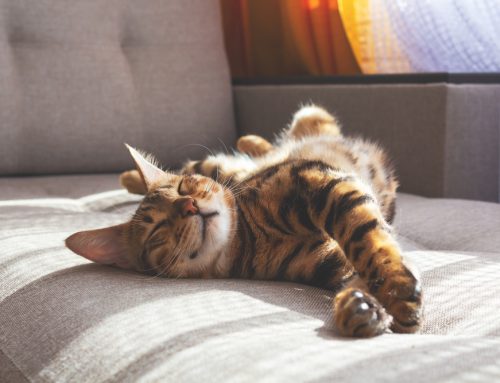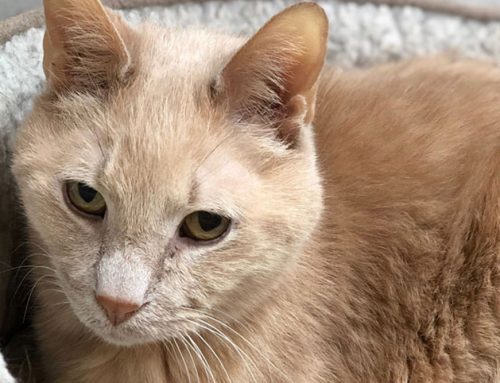Contrary to popular belief, cats are not small dogs—and their behaviors speak for themselves. While most of us come to appreciate our feline friends’ curious behaviors, we may not always understand why they occur. But, by recognizing the reason for your cat’s conduct, you can gain insight into your beloved pet’s inner workings, allowing you to better nurture your special bond. Here are some common cat behaviors that you’ve probably witnessed, along with some explanations for their—sometimes kooky—activities.
- Scratching — There is no question that all cats have an innate need to scratch. You may see your cat scratching to groom their front claws, or get in a good stretch. Some cats scratch surfaces to leave visual or olfactory marks on a surface, warning other cats about their presence. This is such elemental feline behavior that cat owners must provide appropriate scratching devices, such as posts, or pads made of rough materials like cardboard, rope, or other rough fabrics. Otherwise, your precious curtains or heirloom couch may fall victim to your cat’s claws.
- Kneading — Few things are as adorable as your cat curling up next to you and pressing their little paws into you to get cozy. Kneading is an instinctual behavior that roots back to their days as nursing kittens, when pushing and pressing against their mother’s mammary tissue helped to release more milk. If your cat loves to knead near you, they feel comfortable, safe, and secure—take this as an immense compliment.
- Purring — One of the feline species’ most quintessential behaviors is purring, a unique noise made by tiny vibrations in the larynx (i.e., voice box) that create a rumbling-like sound. Cats purr most often when they are content, relaxed, and happy. You’ll likely notice your cat purring when they are cuddled up next to you, while you are petting them, or during nursing. However, while cats typically purr when they are in familiar environments, veterinarians will attest that cats may also purr when they are stressed.
- Rubbing — Does your cat want to rub their face all over you when you arrive home? This behavior, also known as bunting, is usually attributed to marking. Through glands near the chin, mouth, and face, cats produce pheromones (i.e., specific scents that act like hormones) that communicate with others nearby. By rubbing, your cat is essentially marking their territory—which may be you.
- Climbing — It’s certainly no secret that cats are expert climbers. But, do they climb simply because they are good at it, or enjoy it? We can presume that a cat’s propensity to climbing is related to their natural instinct to prey and stay out of sight. By scaling their cat towers, bookshelves, and counters, cats get a view from above, and can calculate the ideal way to catch their dinner, without being seen. Encourage your cat’s need for height by providing plenty of safe climbing contraptions in your home, plus small toys so they can practice preying, for added enjoyment.
- Bringing gifts — If your feline friend frequents the outdoors, you may find generous gifts at your doorstep from time to time. From birds to mice to rabbits, your cat instinctually finds joy in hunting and bringing you their kills, to let you know you’re part of their crew. In short, bringinging you their prey is an act of love. If you find your cat’s gifts less than appealing, try deterring the behavior by limiting their outdoor time to after meal times, or placing a small bell on their quick-release collar, to warn their potential prey.

- Squeezing into small spaces — Cats are famous for fitting into the tiniest of places. If you leave out an empty storage container or cardboard box, you’re bound to find your cat curled up inside. Cats likely love cozy places because they feel snug and secure, but the behavior may also be a nod to their wild roots, when they hid in small spaces to be safe from potential predators. No matter the actual reason, provide small cat-friendly spaces to feed your pet’s need to curl up and chill out.
Cats are curious creatures. At Twin Maples Veterinary Hospital, we adore all the qualities and behaviors that make the feline species unique. If you have questions about your cat, or you are wondering whether their behavior is normal, contact our veterinary team.









Leave A Comment